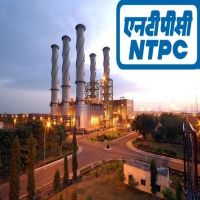The project is expected to commence in 2022 in Simhadri Guest House, Visakhapatnam

Bloom Energy has announced that NTPC, India’s largest energy conglomerate under the jurisdiction of the Ministry of Power, has selected Bloom’s electrolyzer and hydrogen-powered fuel cell technologies for the country’s first green hydrogen-based energy storage deployment.
The collaboration will utilize Bloom Energy’s solid oxide, high temperature electrolyzer to generate green hydrogen from renewable electricity produced by a nearby floating solar farm. The hydrogen will then be converted into carbon neutral electricity without combustion through Bloom Energy’s hydrogen fuel cells to power NTPC’s Guest House, a local accommodation intended for use by NTPC employees and guests.
The project is expected to commence in 2022 in Simhadri, Visakhapatnam, India and is designed to explore large-scale, off-grid hydrogen energy storage and microgrid projects at strategic locations throughout the country.
The solar farm coupled with Bloom Energy’s electrolyzer and hydrogen fuel cells is intended to operate around the clock. At scale, the combination could enable long duration clean energy storage and resilient power for businesses, residential neighborhoods, dense urban areas, and remote and island communities.
“Reducing carbon emissions is the number one priority in the fight against climate change, and green hydrogen will be critical to India’s decarbonization objectives,” said Venkat Venkataraman, Executive Vice President and Chief Technology Officer, Bloom Energy.
“Bloom’s technology is well-positioned to help India transition to a net-zero, hydrogen-powered economy, and we are excited to collaborate with NTPC to bring the country’s first green hydrogen microgrid to life. The powerful combination of Bloom’s high-efficiency electrolyzers and fuel cells enables the highest possible round trip efficiency with green hydrogen for energy storage,” added Venkataraman.
Electricity accounts for nearly 80 percent of the cost of hydrogen from electrolysis. By using less electricity, hydrogen production becomes more economical and will accelerate adoption.
Subscribe to our newsletter & stay updated.